 An interview with acclaimed voice actor Gabrielle Baker
An interview with acclaimed voice actor Gabrielle Baker
People are finally starting to appreciate the convenience and beauty of audiobooks, and understand the incredible skill, training and talent that go into creating them. It’s not just reading your book aloud – audiobook narrators bring the story and the characters to life with their unique performance, including different voices and even accents. Without facial expression or movement, they weave a magical story with their power of their voice alone.
Gabrielle Baker is a highly respected and experienced British voice actor who works from her own home studio on ad campaigns, video games and audiobooks for clients from all over the world. Trained as an actor, she was a finalist at the Voice Arts Awards in Los Angeles last year, and is a best-selling narrator for books from Grace Draven, Clare Lydon and others. So I was excited and grateful that Gabrielle has brought the Into the Mists Trilogy books to life in a brand new format. As she outlined in her own blog, the audiobook market is booming, especially for people who love books but don’t have time to read, so if you haven’t yet, give them a try.
Here Gabrielle reveals some secrets of the trade, top tips for those contemplating similar work, and what she loves most about her job.
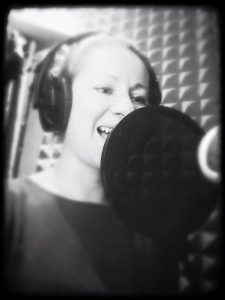 What made you choose voice acting?
What made you choose voice acting?
I chose voice acting because it fits in perfectly with family life. I work from a home studio and am available for the school run, kids’ clubs and other aspects of family life. I got into voice acting via a radio producer who I worked with briefly. He made me see that I could work in my chosen career – acting – and still maintain my family life. It was a light bulb moment!
Are there courses and qualifications you need to undertake before you can start?
You do need acting training of some kind before embarking on a career in voice over or voice acting. It’s not just “talking”, and you need to be able to access a full range of emotions and delivery styles as well as the ability to direct yourself. You also need to know your way around the equipment and studio set-up.
Had you done any physical acting, and how different are the two?
Learning acting as a profession and character training is where I started, so I have done some physical acting. Those early days were indispensable to me and I still love actor training – it’s a real craft that needs constant work and dedication. But now I just act behind the mic and have only the power of my voice to reach audiences. The main difference is projection of the voice, ie you simply cannot shout down a microphone without it causing all kinds of horrid technical issues. Most importantly, you only have your voice to use in order to connect with the audience. No facial movements, no body language, just your voice. Physically embodying an emotion is key to finding the right voice tone – but too much movement will be picked up by the very sensitive microphones and ruin the audio. So if you’re voicing a fight for example, you need to be physical – without moving! Yeah, I know 🙂
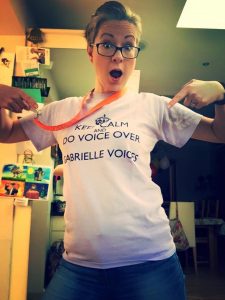 How do you prepare to narrate an audiobook?
How do you prepare to narrate an audiobook?
In preparation for an audiobook I first read the entire script. It’s vital that you know every character in the book and what happens. Imagine getting to the end and suddenly finding out that the character is Scottish and you gave them an American accent. (I’ve heard that has in fact happened!) Narrators need to make notes on the characters and their storyline. We need to identify any words or names where the pronunciation needs clarifying – like the seasonal sabbats in Into the Mists for example – and any foreign words need translating and checking. At this point I usually go back to the author or publisher with a list of questions I can’t solve, or queries about how they would like a particular character to sound if it’s not clear.
[And here I must commend Gabrielle on her Australian accents, and the research she did to bring those characters to life.]
How do you prepare for a day in the recording studio?
Preparation for a recording session starts hours – and days – before I step into the booth. Hydration is the most important thing. If you’re dehydrated it can create horrid mouth noises, so a voice actor will typically sip away at 2-3 litres of water a day. You need to keep alcohol and caffeine to a minimum, as they dehydrate you, and avoid fizzy drinks and foods that make your mouth claggy. Most importantly, do not eat or drink dairy products. Dairy produces mucus and phlegm, which are the enemy when it comes to mouth noise (I personally boycott as much dairy as possible, so this part is easy for me)… Lastly, clean your teeth, make sure your tummy isn’t rumbling, wear comfy noiseless clothes, no rattling jewellery, and switch your phone off.
How do you keep in shape for regular long sessions?
I try to practise yoga daily, and will stretch out during the day. Audiobooks are recorded sitting down, so you must make sure you get up and stretch out your body. Other voice over work is usually recorded in a standing position.
Is it hard to move from character to character within a book?
Moving from character to character when narrating is not as hard as it sounds – but it is where the mistakes can happen, because narrating prose is easier than dialogue. You need to be able to embrace your multiple personality possibilities when having a three or four-way conversation, but it’s great fun. Very tiring, but great fun!
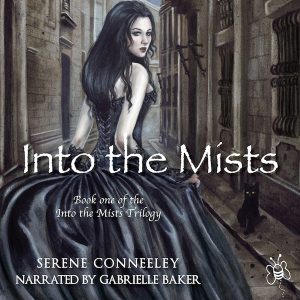 In Into the Mists you voiced everyone from a five-year-old English boy to a seventeen-year-old Australian girl to a sixty-ish high priestess to an Otherworldly being. Are some characters more challenging than others?
In Into the Mists you voiced everyone from a five-year-old English boy to a seventeen-year-old Australian girl to a sixty-ish high priestess to an Otherworldly being. Are some characters more challenging than others?
As a woman it can be tricky voicing a man, but the key is that I don’t need to sound like a man, I just have to change enough of my tone so that it’s comfortable to listen to. With children’s voices you also have to be careful not to sound squeaky. The trick with them is to think like a child, and imagine how they are sitting or standing – when you embody that the voice often follows.
What are some other character types you’ve brought to life?
Some really fun characters I’ve brought to life have been animals. I narrated a beautiful children’s book called The Seren Trilogy, by Darren Lewis. There were rabbits and dragons with the children’s characters and it was fantastic. In Grace Draven’s Wraith Kings series I voice paranormal/fantasy characters. These Otherworldly beings can be really powerful.
Are sex scenes difficult to narrate? You’ve had impressive reviews for yours!
Narrating sex scenes is not as scary as it sounds. I’d rather narrate them than write them for sure. By the time characters in most books get around to bedroom activities I have generally developed a real feel for them and I understand how they’ve got here. Sex scenes can be quite emotional and playing both parts is fun. I had to narrate a rape scene for one project and after the end of the scene I had to step out of the booth and have a break. It was very emotional, I felt spent afterwards and needed some time for my voice to get back to narrator level.
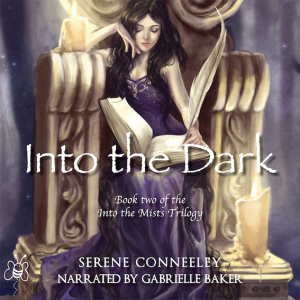 Is it hard to move between projects, or do you not start a new one until you’ve finished the previous one?
Is it hard to move between projects, or do you not start a new one until you’ve finished the previous one?
If I have a very quick turnaround between audiobooks it can take me a while to switch my brain around. Sometimes the first chapter is a bit low and if I don’t feel I’ve got it right, I’ll re-record it. But after chapter one…. I’m off!
You also do commercials and voice video game characters – how different are they?
Other voice over projects are very different to audiobooks. Firstly, they are more lucrative and quicker to complete, however they are often less fulfilling. Corporate work can be very functional and sometimes the scripts are uninspiring and difficult to understand, with a lot of technical language. Video games are heaps of fun. Very exhausting and demanding but a real adrenaline rush. You have to deliver lines which are totally out of sequence, and often the storyline is difficult to understand, however you are always directed by people who know exactly what they want from you. You just have to deliver.
[You can hear some of Gabrielle’s reels here…]
What’s your dream role/character?
I don’t think I have a dream character or role. I often take on characters that surprise me by how much I fall in love with them. Characters with a twist or dark side are always fun, and I love revealing that to the listener who doesn’t know about that side of them yet.
Your story is especially inspiring because you were dyslexic at school – how have you dealt with that challenge?
It is surprising that I now read for a living given that I have mild dyslexia and struggled with reading at school. I was always bright at school, and went through the whole system gaining A levels and a BA Honours, then I studied for a French diploma with the Open University later. However, study was not easy. I am a slow reader and I read every single word. Skip-reading is an enigma to me. This means that holiday reading is tricky, as it can take me a long time to read a book for fun. However I’ve hacked that issue, because reading at “speaking pace” is absolutely perfect for audiobooks! The only drawback is that it takes me longer to prepare a book, because I’m such a slow reader. Like most issues I find that once you find a work-around you are fine. I’m like that with maths. I can’t understand numbers, so I don’t use them! My accounting software is a gift and I’ve never ever needed algebra! EVER. Lol
What qualities should someone have to be a great voice actor?
I’m still very much learning about becoming a “great voice actor”, but those that inspire me at the top of my industry are hard workers, passionate about the craft and committed to always learning and expanding their skills. Give yourself to the words, understand them, and then give your heart and soul to bringing them to life. For me the most important thing to remember about being an audiobook narrator is that you have in your hands a very precious piece of work. A book that an author has spent months, maybe years, writing and perfecting. It may not be a “great” masterpiece, but while you are narrating it you should remember the importance of that book to the person who wrote it. Love it, embrace it and be respectful to the amazing amount of hard work that has gone into getting it to your lap for narration. I’m so grateful to have been able to work with some amazing authors so far, especially the ones who publish independently. Working directly with an author brings me closer to the work and I become a part of the whole story. With publishers, it’s more a case of: Record. Hit send. Move on.
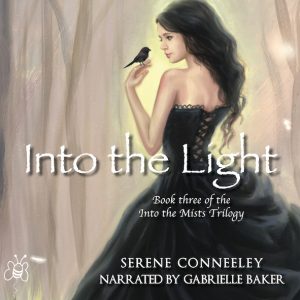 The Into the Mist audiobook is available here.
The Into the Mist audiobook is available here.
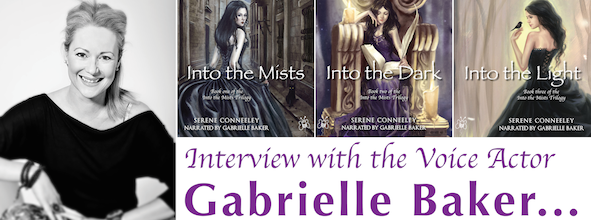
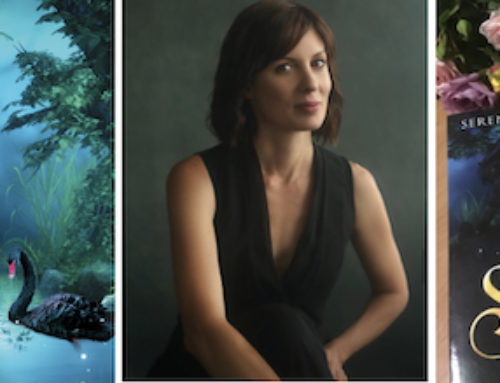
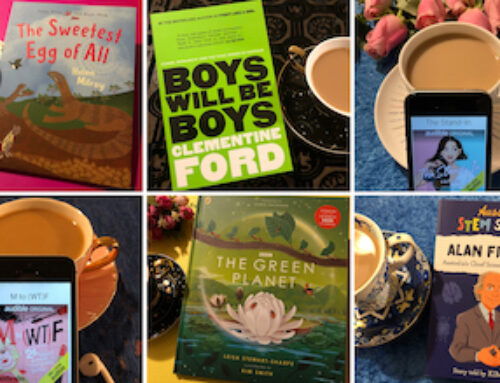
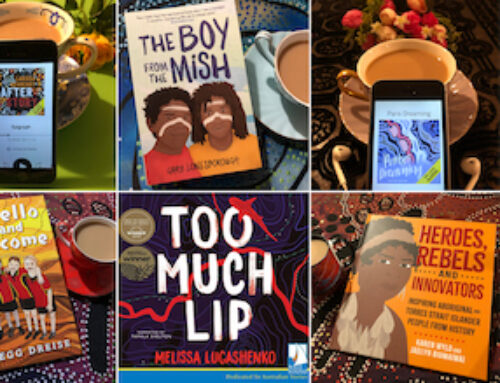

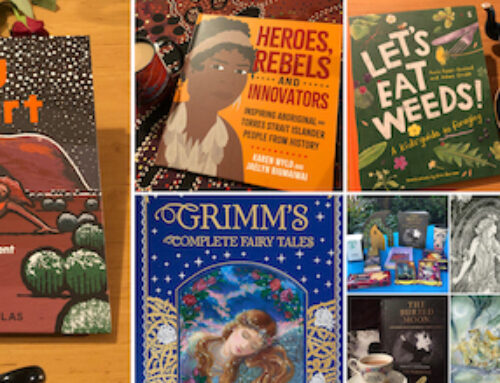
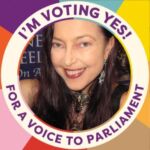

Get Social